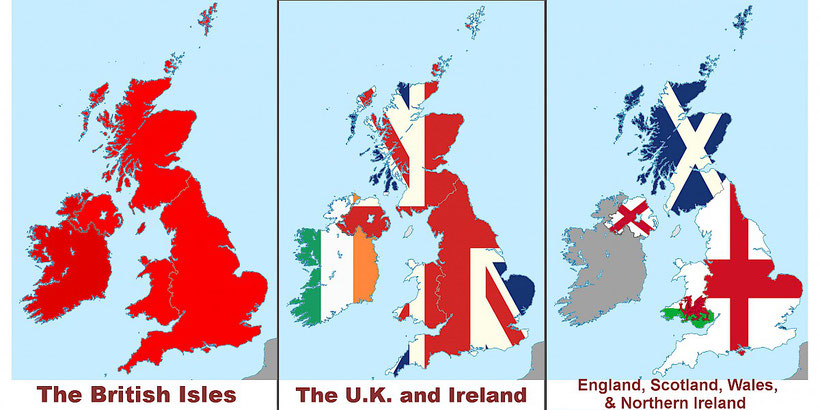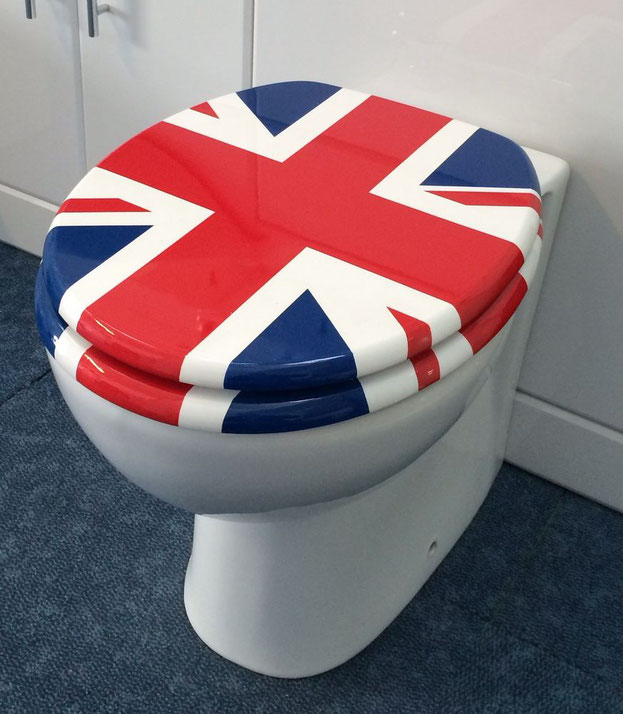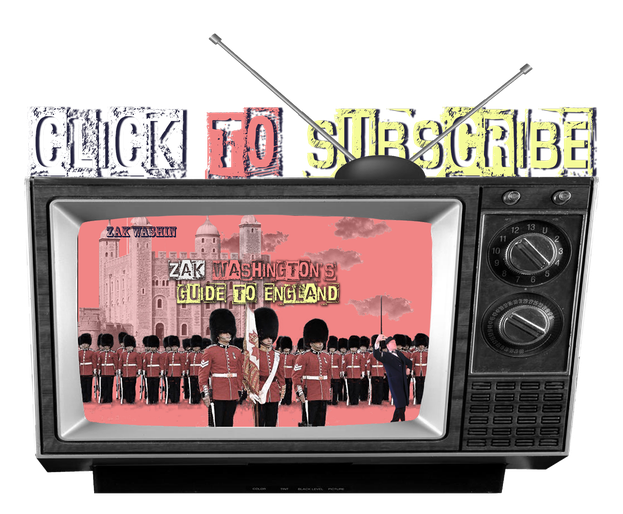
There is a lot of confusion about the names of the nations, the nationality and the identity of the islands. Here we explain how to use the terms correctly.

The geography.
Great Britain is the large island that is north of France, and east of Ireland. It contains three autonomous regions:
England, Wales and Scotland. Great Britain and Northern Ireland, together, are called the United Kingdom(The U.K.), which is, officially, the name of the country.
The official title that you can find on a passport of a person from any of these four regions is The United Kingdom of Great Britain and Northern Ireland.
Ireland (or Eire) is a separate country altogether. Confused? Us natives are too.
The British Isles refers to both the large islands, and therefore includes Ireland too, but this expression is used only in relation to geography.
What to call people...
This is all according to the ‘official’ description. Natives of Britain often think in different ways.
If you ask any Englishman, or Welshman where he’s from, he will tell you England, or Wales, not the United Kingdom. Nobody except tourists say, 'Are you from the United Kingdom?'. We seldom refer to ourselves as British either, probably because it has political connotations. For the same reason, it is much less common to see the British flag – the Union Jack – (the red, white, and blue one) hanging in public places, as it is to see the American flag in the US.
The easiest and safest way is to refer to each individual country or nationality. Thus England/English, Scotland/Scottish, Wales/Welsh, Northern Ireland/Northern Irish.
Brits, British, Britishers, etc...
All of these people could be called Britons, Brits, British, or more unusually, Britishers. Britons is uncommon outside of newspapers and formal styles. Brits is a popular word with non-Brits, and is informal; 'Typical Brits abroad, always causing problems. Britisher is an ugly word that is only usually heard outside Britain too. British is the most universal and acceptable way of talking about the person’s nationality. It describes the people, but can be used as an adjective for anything else too: ‘British weather is so bad, but when it rains, a lot of British men go out without their umbrellas. Why?’ Also note that there is no adjective for someone from the United Kingdom, which considering this is the official name of the country, is absurd!
National identity and my wallet
Most people identify with the region where they come from. English people are proud to be English, for example, and most countries are probably patriotic about things like football that concern local identity. But the 'real country' is a political construct that is interested in collecting money (in the form of taxes) and redistributing or relocating it to other people. Local people are far more flexible and unpatriotic about their national identity when they think they will make more money.
Take the case of Northern Ireland, traditional divided on religious lines (Protestants and Catholics) and on national lines (part of the U.K or not?) When British people voted to leave the European Community applications for Irish passports increased 500%. Many people think that they might be richer in the EU.
National flexibility
America has shown on numerous occasions that 'nations' are prepare to abandon their sense of allegance and identity to become richer. California was, of course, a part of Mexico and Puerto Rico and Hawaii were separate cultural and political entities.
The perpetual war industry
Britain is no different. Most British people in the street don't even know what the differences between England, Great Britain or the United Kingdom are. Local identity is fun and local culture fascinating... but nation states are an invention of the military - government nexis and exist to take your money in taxes and fund the perpetual war industry. It's basically a criminal scam and a complete waste of time.



